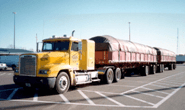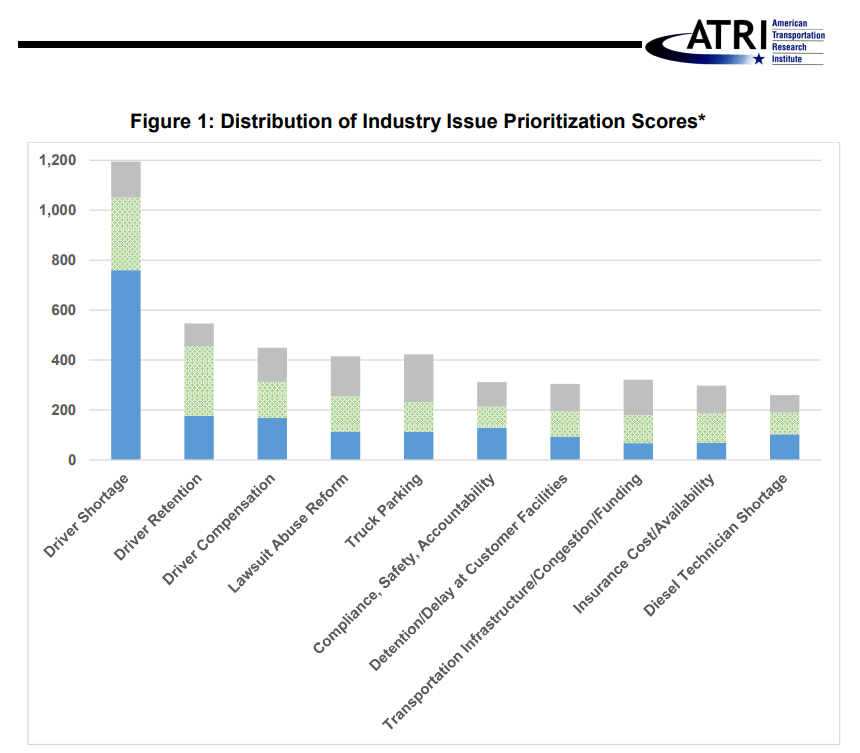Logistics

October 25, 2021
ATRI Survey: Driver Shortage is Trucking's Top Challenge
Written by Tim Triplett
For the fifth year in a row, the driver shortage topped the list of trucking industry concerns, as ranked by the American Transportation Research Institute in its 17th annual Top Industry Issues report released this week. The driver shortage garnered more than four times as many first-place votes as the number two issue, driver retention. Further reflecting the industry’s workforce challenges, driver compensation was ranked third overall.
“It really is no surprise that truck driver-related issues – notably the driver shortage and driver retention – ranked so high on the survey. Coming out of the pandemic, with the increased demand for goods and other pressures on the supply chain, getting and keeping drivers has been a real challenge industrywide,” said ATRI President and COO Rebecca Brewster. “We also see the impacts of the current supply chain crunch in how highly issues like driver compensation, truck parking, infrastructure and driver detention ranked on the list.”
More than 2,500 trucking industry stakeholders participated in this year’s survey, including motor carriers, drivers, industry suppliers, driver trainers, law enforcement, and others. Nearly 25% of the survey respondents were professional truck drivers; among driver respondents, driver compensation and truck parking tied for the number one industry concern. Detention/delay at customer facilities was ranked by drivers as their second most pressing concern.
Lawsuit abuse reform rose three spots this year to take the number four spot, and the lack of available truck parking rounded out the top five industry concerns. The diesel technician shortage made the Top-10 list for the first time this year (see chart below).
The full report can be found at ATRI’s website – Truckingresearch.org.







